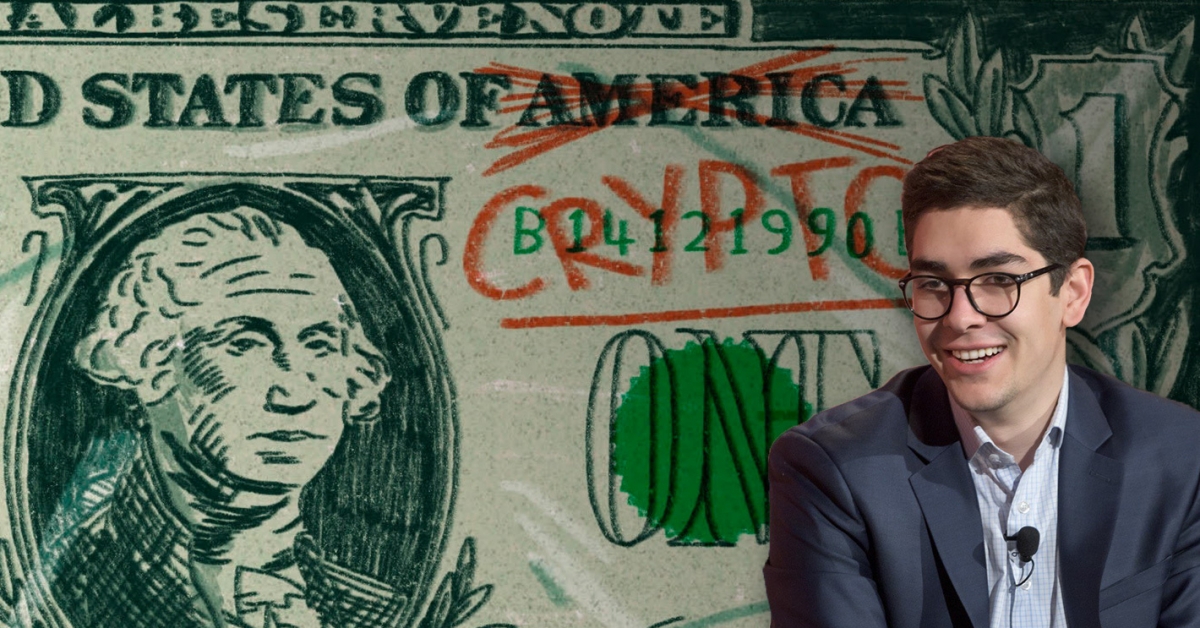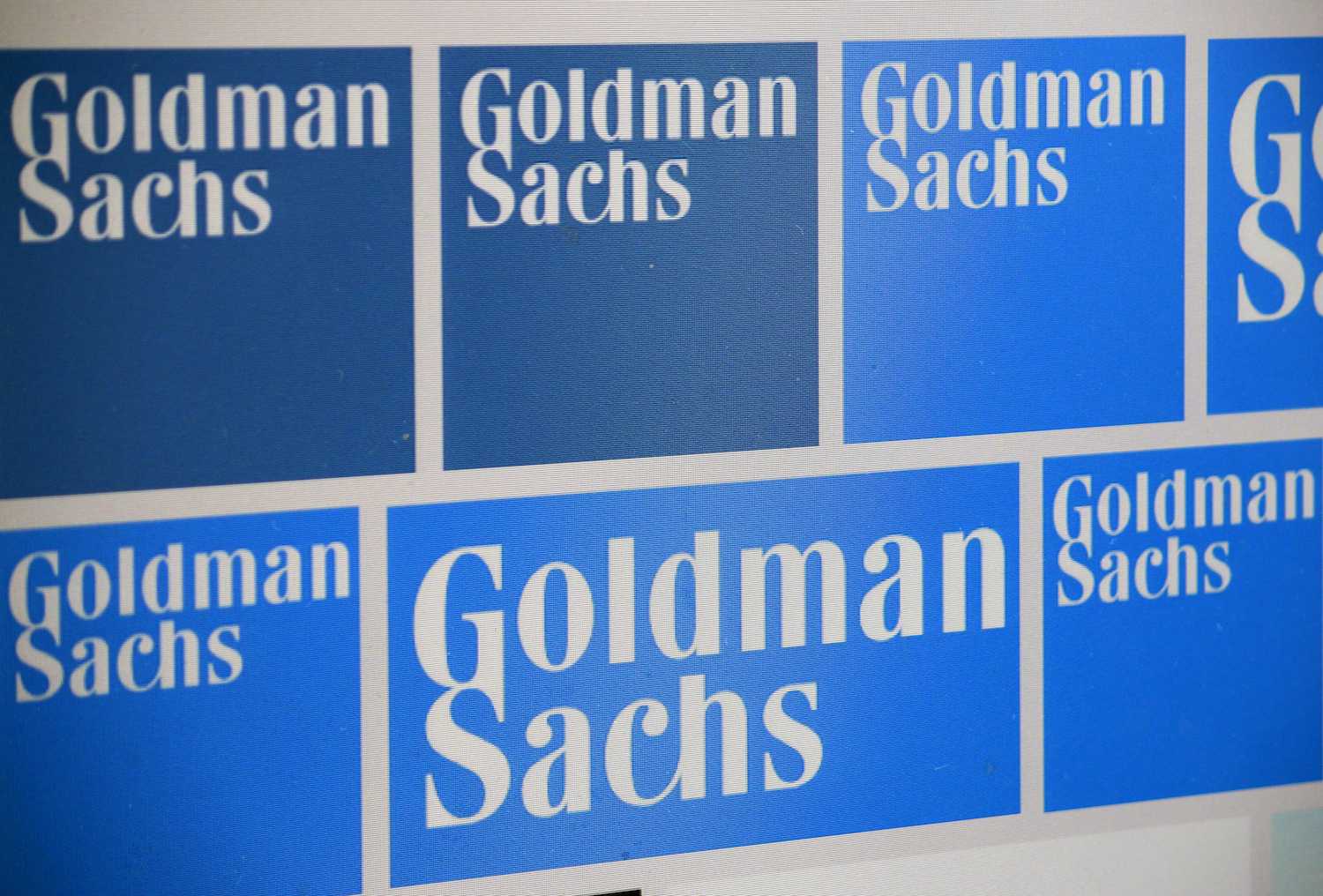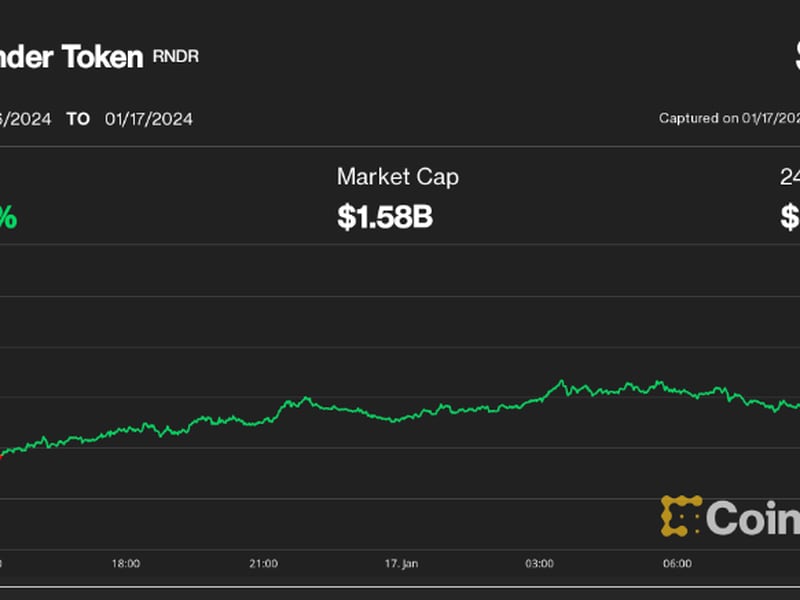Jenny Johnson Has 76-Year-Old Franklin Templeton Learning Blockchain Tricks
/arc-photo-coindesk/arc2-prod/public/LXF2COBSKBCNHNRE3WTK2BZ7GE.png)
The old-school vibe is right there in Franklin Templeton’s logo: Benjamin Franklin staring at the viewer from the 18th century. That’s not all. BEN is the company’s stock ticker symbol. “Templeton” is an allusion to Sir John Templeton, the investing legend born in 1912. And a single family has always been in control of the business. Today, Jenny Johnson is at the helm, following her brother, father and grandfather, who founded what’s now known as Franklin Templeton in 1947.
It feels like a company rooted in the past, so it’s no wonder that when Franklin Templeton asked people how they felt about the brand in 2020, the year Jenny Johnson ascended to CEO, a common response was “old-fashioned,” according to The Financial Times.
This profile is part of CoinDesk’s Most Influential 2023. For the full list, click here.
And, yet, Johnson has pushed this $1.33 trillion asset manager toward the front of Wall Street’s embrace of the very modern field of cryptocurrencies – or at least the parts she likes. Franklin Templeton has joined other finance heavyweights like BlackRock and Fidelity in applying to list a bitcoin ETF in the U.S. It offers a money-market fund, a type of investment product that serves as bedrock in conventional investing, that processes transactions and tracks ownership on public blockchains. It lets clients buy crypto. It even has nodes on several proof-of-stake blockchains including Ethereum, Solana and Stellar, meaning this 76-year-old company helps power networks that, in age terms, are at best just starting grade school.
:format(jpg)/cloudfront-us-east-1.images.arcpublishing.com/coindesk/A644LIGH5NFG5PJSLFX2KEYUUU.png)
In traditional finance, or TradFi, terms, she’s all-in on crypto. However, she is most definitely not into the whole space. Don’t hold your breath waiting for a Franklin Templeton Bored Ape Yacht Club NFT Fund; she’s even downplayed the original cryptocurrency, bitcoin (BTC).
“I often say, ‘Bitcoin is the greatest distraction from the greatest disruption,'” Johnson said in an interview released by Morgan Stanley in September 2022. (All direct quotes in this story from Johnson come from this Morgan Stanley interview unless specified otherwise. Johnson was not available for an interview with CoinDesk before this story was written.) Although “currency” is part of the word “cryptocurrency,” she doesn’t think these digital assets will replace conventional currencies. “Governments will always want to control their currencies, so it’ll never get so big to disrupt that,” she said.
Instead, what excites her is the prospect that the ledger technology, blockchain, that all of crypto is built atop could create new business models in finance.
To understand what that means, it helps to remember the takeover spree she has been on since becoming Franklin Templeton’s CEO, including the marquee purchase of Legg Mason. These deals have made her company a player in “alternative” investments, industry jargon for hedge funds, private equity, real estate, firms other than banks lending money and more. As of Oct. 31, it had $253.8 billion of assets in that area.
Whereas stocks, U.S. Treasuries and gold are relatively easy for just about anyone to buy, alternatives are an exclusive club. An enticing prospect for any financial institution looking for the next vein to mine for profits would be broadening access. For Johnson, that’s where tokenization comes into play. This concept, which is drawing a lot of Wall Street’s attention these days, involves representing ownership of real-world assets like, say, a Manhattan apartment building or a privately held company through tokens that can be traded and tracked via a blockchain. (Though U.S. regulators, who famously want to heavily regulate digital assets they deem securities, might have something to say about that.)
Tokenization will be “a really important part of the democratization of alternatives,” Johnson said.
Tokenization has quickly become a finance buzzword in 2023, muscling out the word “crypto.” A trade group for the derivatives business called the Futures Industry Association holds several conferences a year. Crypto was a fairly popular topic at the November 2022 event in Chicago, held days after Sam Bankman-Fried’s FTX blew up. “Crypto” appeared in the title or description of eight speeches and panels. That dwindled to just one at the Chicago gathering in October 2023, though there was also one on tokenization, so crypto made a stealthy additional appearance.
Hopes are high. Digital asset management firm 21.co recently said that the tokenization of real-world assets could grow to be a $10 trillion market by 2030.
From New Jersey to Silicon Valley
Johnson grew up in New Jersey. Around the age of nine, she moved to California. She got an economics degree from the University of California, Davis. Johnson wanted to pursue a career in financial services. Her father, Charlie Johnson, urged her to begin that career in New York City, the center of finance in the U.S. So, she worked for a year at Drexel Burnham and lived in Jersey City.
Then she joined Franklin Templeton, which is headquartered in the Silicon Valley town of San Mateo, California, in 1988 and never left. She started as executive administrative coordinator to the chief operating officer, a job she describes as: “I did whatever I was sent to do.” Later, she ran a credit-card business and then an auto-loan division. “I know more about consumer lending than anything else,” she said. At one time or another, she ran all the company’s major divisions – investment management, distribution, technology, operations and wealth management – before becoming CEO.
This is not, of course, the background of a crypto degen addled by memes, Discord battles and the latest altcoin fad. (That said, Franklin Templeton’s venture-capital arm invested in Discord, the chat app popular in the crypto realm.) But TradFi and crypto are intersecting, so the Jenny Johnsons of finance will undoubtedly have to rub shoulders with crypto-natives. Their goals are often different. Go back to the beginning of crypto: Satoshi Nakamoto’s Bitcoin white paper in 2008 envisioned creating a peer-to-peer system to convey money “without going through a financial institution.” In other words, TradFi is joining an ecosystem that sought to undermine it. As those two worlds get closer, friction is inevitable.
But Johnson can sound like an idealist when she talks about what blockchains can do. From the start, Bitcoin aimed to create a financial system in which you didn’t need to trust the person you’re trading with. You could feel secure doing this on the Bitcoin network because of cryptographic proof, regardless of the trustworthiness of your counterparty.
“Blockchain is a technology, and it’s pretty efficient,” Johnson said. “A transaction can happen with embedded trust. There are many roles that people have in financial services that validate, so that if you and I transact, you know you can count on it. A title company helps to ensure that there’s property. Investment bankers doing certain things around making sure that the ownership is transferred appropriately. Blockchain allows it to be embedded with a smart contract in the code. And a token is just the code that says, ‘When I transact it to you, you can count on a lot of those things being embedded.'”
The main takeaway is this: Here’s a prominent TradFi figure hinting that finance stuff can be moved over to blockchains. Yes, people on Wall Street have been dreaming and talking about this kind of thing for the better part of a decade, with little to show for it. Nonetheless, Johnson is a prominent person and her beliefs matter.
She’s taking the long view. “Some of the stuff we’re doing in the blockchain space won’t be material to the firm for seven to 10 years, but we think it’s really important that we’re doing it now,” Johnson said during an episode of the “Masters in Business” podcast from July 2023.
Ben Franklin would probably approve. In 1735, he wrote: “Look before, or you’ll find yourself behind.”









